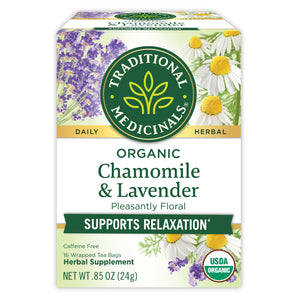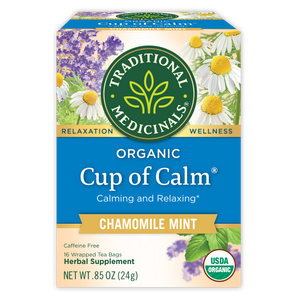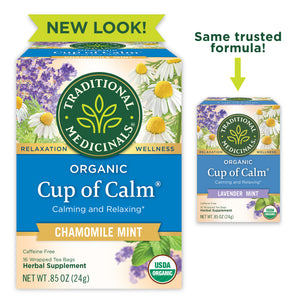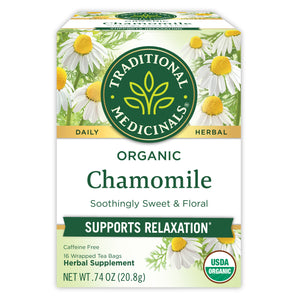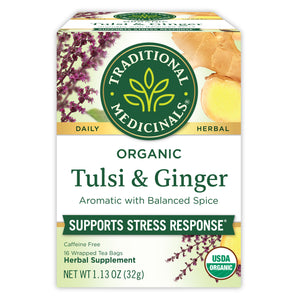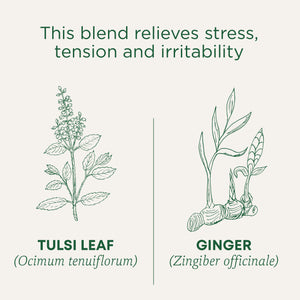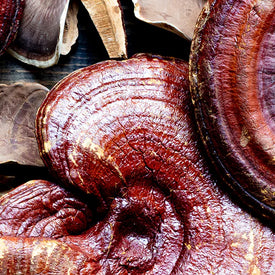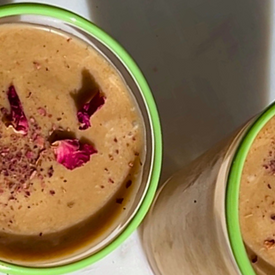Tulsi may be a new herb to many in North America, but in its native India, this medicinal plant has been a household name for over 5,000 years. As a member of the mint family, its oblong, serrated leaves and square stem may seem very familiar, yet there is something mysterious and otherworldly about tulsi that has earned it nicknames like “holy basil,” “Queen of Herbs” and “The Mother Medicine of Nature.” Perhaps it has something to do with the Hindu goddess Tulsi, for whom the herb is named. Our herbalists have tapped into its traditional Ayurvedic use in our Tulsi with Ginger tea to help support the body’s response to stress and maintain daily wellness.*
This full-leafed perennial is indigenous to the high altitude foothills of the Himalayas. Its stalks of purple, “fragrant lipped, small flowers” lend tulsi its genus name, Ocimum tenuiflorum, in Latin. The plant has since spread throughout much of India, growing upright to as high as 18 inches. Depending on the climate it grows in, tulsi can produce three harvests per year, making this as generous an herb as it is a beneficial one. Ayurvedic healers have praised it for centuries for its many healing properties, which is why Hindus consider tulsi a household herb.

From a cultural perspective, the fact that many Hindu families offer tulsi a proud place in their home also speaks to their reverence for the goddess, as well as the plant’s many protective benefits. The plant’s namesake hails from Tulsi, a Hindu goddess thought to be the incarnation of Lakshmi, wife of Vishnu, and a symbol of the Divine Mother, longevity and compassion. Hindus worship over the plant in the morning and in the evening, and they consider all parts of the plant holy—even the very soil it’s planted in. In folk medicine, some use the plant to repel insects and symbolically place it near the head of the dying.
While there is much debate within the herbal community regarding the status of tulsi as an adaptogen, it is clear that its chemical makeup has a positive effect on the body’s ability to respond to occasional stress. As a plant rich in essential oils like many members of the Lamiaceae family, tulsi is a great choice to soothe the nervous system by acting as an aromatic nervine, especially when taken consistently over time.* And let’s face it: in this day and age, we can use all the help we can get in keeping our stress response healthy.
If you’re considering integrating herbs into your daily wellness regime, tulsi is an ideal herbal ally to help you maintain balance. For a gentle, earthy and floral drinking experience, we recommend trying our Tulsi with Ginger tea. Nourishing and vibrant, you’ll soon understand why this herb is such a blessing.




